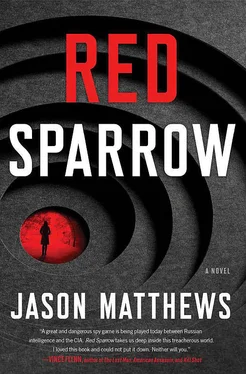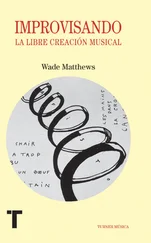SWAN. The most important asset for Russian intelligence in the last five decades. Gone. Heart attack. Nonsense. It was likely she had used the suicide pen Golov had requested and which Egorov himself had authorized. This was a nightmare. Who could have guessed that the Americans would so quickly identify her as the mole? And who would have predicted, in this post–Cold War age of celebrity agents and politician spymasters, that such a drastic, such a violent— such a Soviet —conclusion to the SWAN case would be played out? Egorov told himself that he had a narrow window to redemption. The CIA-directed mole was responsible for this costly loss. If Egorov could unmask him, he could salvage his position.
There were at present only two options to pursue: the technical chief, Nasarenko, implicated in the canary trap, and the traitor’s CIA handler, Nash. Egorov pointed a remote control at the television to change channels. A clear color picture of Nasarenko appeared on the screen. Every second of the multiple hours of his security interviews in the interrogation chambers of Butyrka had been filmed, and Egorov was coming to the same opinion voiced by Zyuganov, that the twitchy technician was incapable of acting as a CIA internal asset. The tapes showed the beatings, the drug-induced hysterics, Zyuganov leaning over his subject wearing some sort of military jacket. Don’t ask, thought Vanya.
The relevant portion of the tape had been marked, and Egorov ran the counter forward to the spot. Nasarenko numbly was admitting that he had spoken of the crushing backlog of work with the Americas Department chief, General Vladimir Korchnoi. Korchnoi had offered to send him two analysts to ease the workload. Nasarenko had showed Korchnoi one of the discs during the conversation. No, he had not inventoried the discs after that conversation. Yet by the investigators’ count one disc was missing, misplaced. No, it was ridiculous to think Korchnoi would have taken one of the discs. Impossible.
Impossible? thought Egorov.
He had known Volodya Korchnoi for nearly twenty-five years, ever since the Academy. Korchnoi had proved himself to be a superlative operations officer, adept, bold, cunning, the sort of man who could in theory excel as a clandestine asset for the CIA and survive the dangers. His foreign assignments moreover would have presented many opportunities to connect with the Americans. Impossible, he thought. Nasarenko would be spluttering for months, more names, more mewling explanations, more temporizing delays. Egorov would raise the idea of Korchnoi with Zyuganov, but there was no time now. The American Nash was the key. His niece was already on her way to Greece. They would see how things turned out.
=====
Dominika marveled at the white light in the Athens air. Rome’s sunlight was golden, softer. This Aegean light weighed down on you. The buildings reflected it, the black roads shimmered in it. Downtown traffic—taxis, trucks, and motor scooters—poured in a liquid mass down Vasilissis Sofias to part, like waves against a spile, around Syntagma Square and the House of Parliament, to recede down smaller streets toward the Plaka. Dominika left her hotel and walked downhill through the buzz of Ermou Street, past shops with two-story displays of lighting fixtures, sports bags, and fur coats. Mannequins in white fox stoles stared back at her, signaling her with tilted heads and segmented wrists. Be watchful, they said.
Dominika worked the street hard, crossing in midblock, entering doorways, using the mirrors in the shops and in the sunglasses stores to categorize elements on the street. Short, dark, sleeveless, mustache, dusty rubber sandals, flicking dark eyes. She smelled roasted, popping chestnuts, heard the twang of the wheeled barrel organ on the corner. Look for the foreign face, the blue eyes, the Slav cheekbones. Look for the brown bloom, the yellow, the green, the signals of danger, deceit, or stress.
Dominika was dressed in a blue cotton dress with a square neck and black sandals. She carried a small black clutch bag and wore round sunglasses with black frames. An inexpensive wristwatch with a black face and a simple link band was on her left wrist. She wore her hair up, cooler in the midmorning heat, a blue-eyed Russian doing countersurveillance before meeting a member of the opposition.
Dominika turned off Ermou onto a side street, passing tiny storefronts displaying religious vestments, golden cassocks, stoles, and miters. Silver pectoral crosses hung on heavy chains and rotated slowly in the display windows. She was alone on these side streets, alone after one, two, three turns. Ahead of her was the little Byzantine chapel of Kapnikarea, sunken in the middle of Ermou Street, broad brick and slit windows and sloping tile roof. Dominika crossed the street, went down five steps—the level of the street in AD 1050—and entered the chapel.
The inky interior of the church was minuscule. Frescoes and icons in the ceiling arches were chipped and water stained, the spidery Byzantine letters came off as pale red to her, faded as if by eons of candle smoke and incense. Near the door was a sand table with long orange tapers, some tilted against each other. Dominika took a candle out of a nearby stack and lit it with the flame of a candle already burning in the sand tray.
Before she could seat the bottom of the candle into the sand, a hand appeared and tipped another wick to the flame of her candle. Dominika looked around and saw Nate standing close behind her. He had a wry expression on his face, and the purple halo around him made him look like one of the Byzantine saints on the peeling frescoes. He put his finger to his lips, gestured with his head, and slipped out the door. Dominika waited a moment, planted her candle in the sand, turned, and went out into the white sunlight and city noise.
Nate was standing across the street, and Dominika went over to him. He was very proper, businesslike, the case officer meeting his asset. Dominika remembered the intimacy of Rome the time before, and of Helsinki earlier. They had been lovers, apart from the spying, something vital and edgy and true.
For Nate, the memory of them was more complicated. He had slept with his agent, he was risking his career, her safety, an enormous misstep. He had been warned by Forsyth and Gable, men he respected, yet he made love to her again in Rome, helpless to stop, and with the transcendental Benford in the next room. He had died a little inside when she had been recalled to Moscow, and he blamed himself for what she had had to endure. Now they had a mission to complete and there was a line of dew on her upper lip and he wanted to reach out and touch her.
Dominika knew it too, with the clarity of a synesthete. She stood apart from him, not offering her hand, watching his eyes, the purple in the air around his head. She knew he wanted her to be his asset, his source, his agent, but they were more than that. He wouldn’t budge, so she was determined to remain professional. They stood there in the drubbing sunlight for a second, then Dominika said, “Shall we go?” and she followed him as he turned to walk up the street.
They meandered down narrow alleys into the heart of the Plaka, turning left, then right on a seemingly aimless course, a route that would force any coverage to close up in the maze of passageways and courtyards and little open squares ringed by shops. Music drifted out of stores, yellow sponges threaded together in lumpy ropes draped the doorways, the peppery perfume of incense and sandalwood drifted in the air. Automatically, Nate stole glances over Dominika’s shoulder—she fluidly looked past his ear to check the other side of the street. He caught her eye and she shook her head slightly. Nothing that I can see. He nodded his agreement.
Читать дальше












